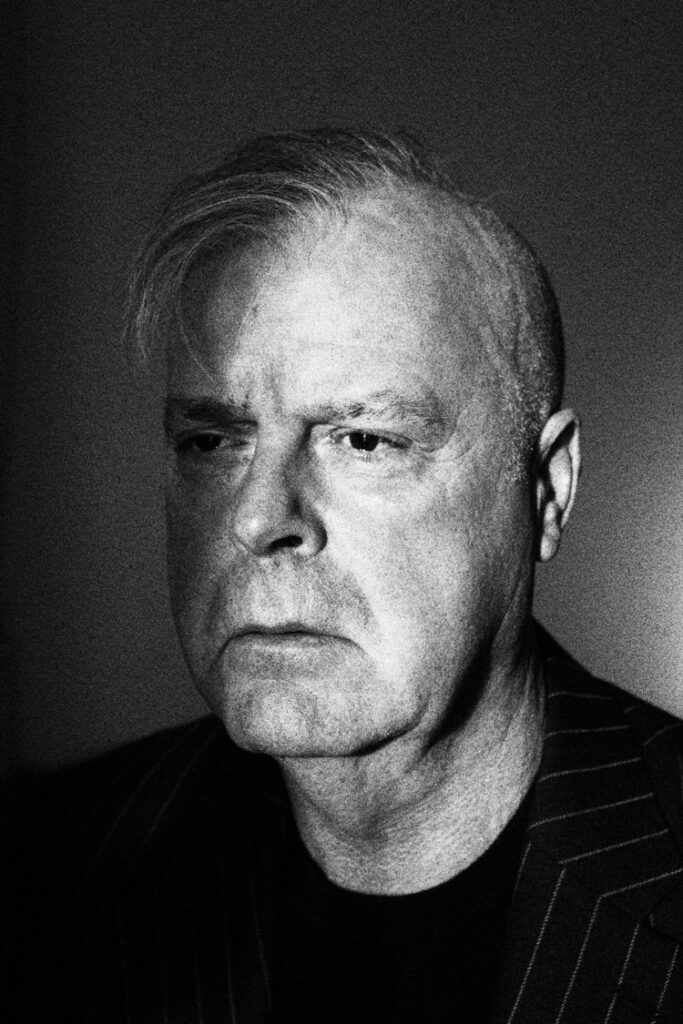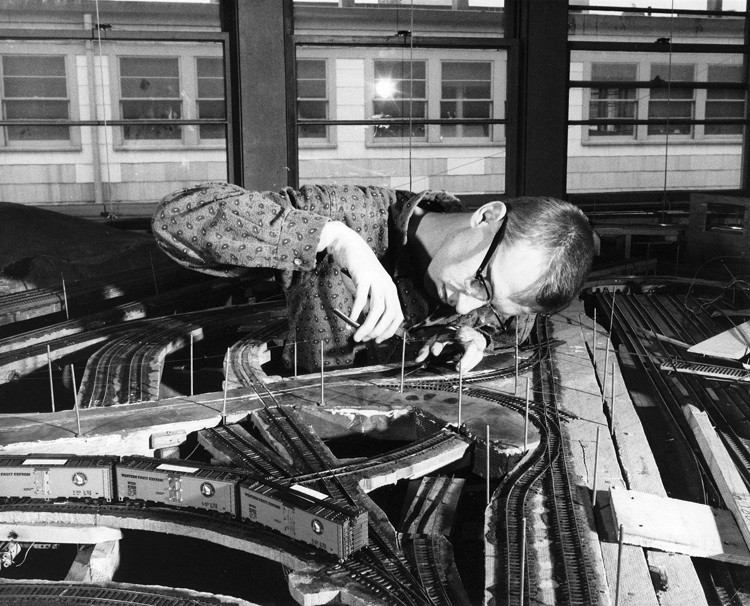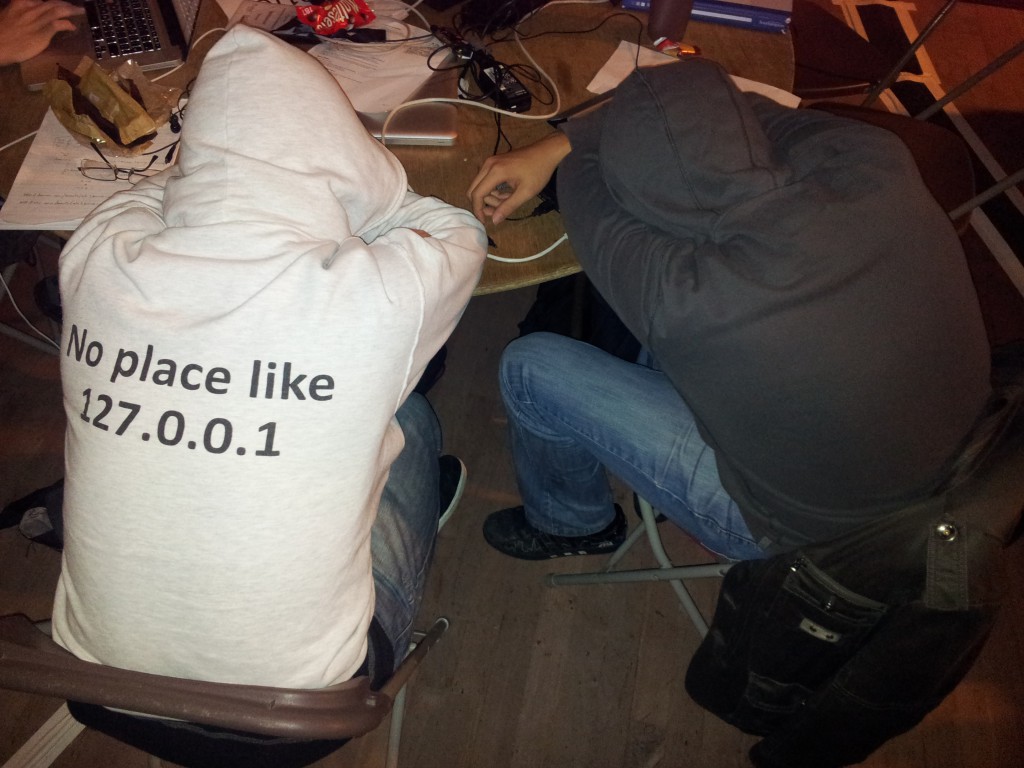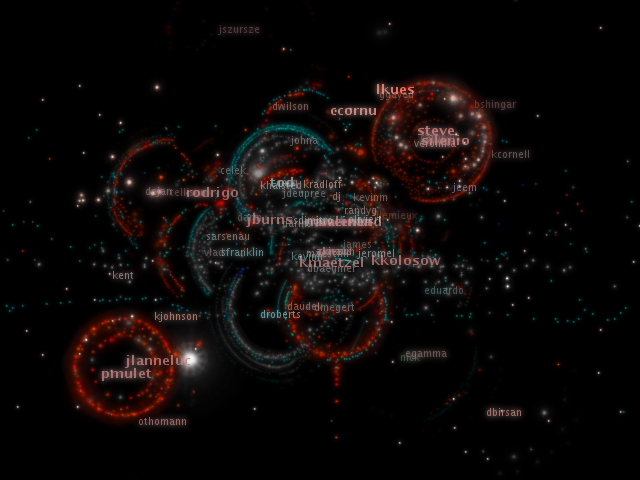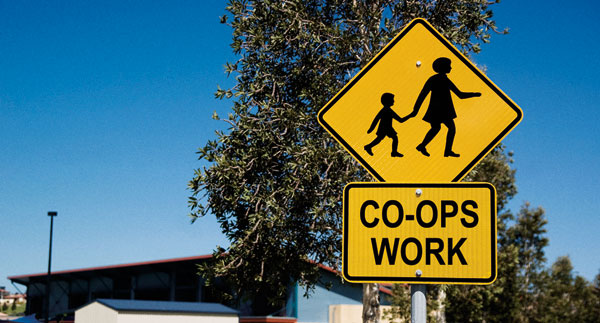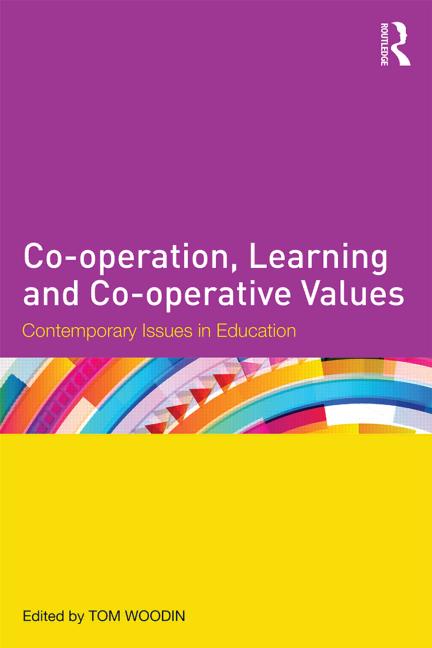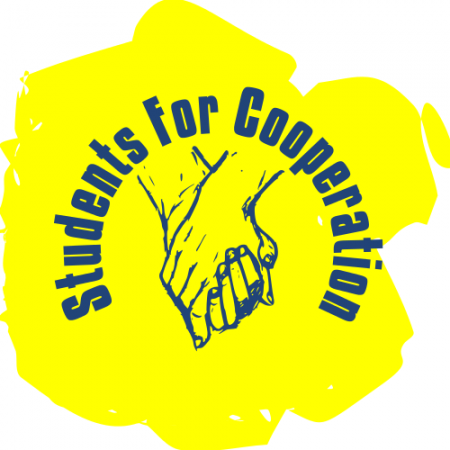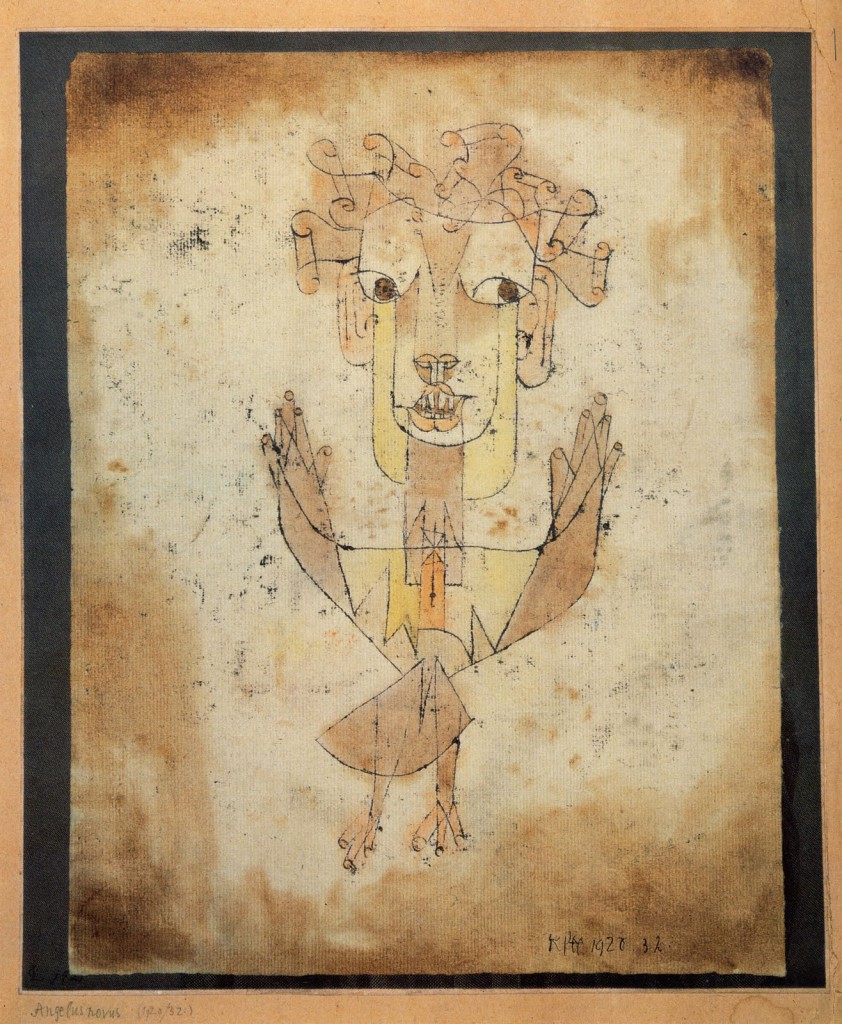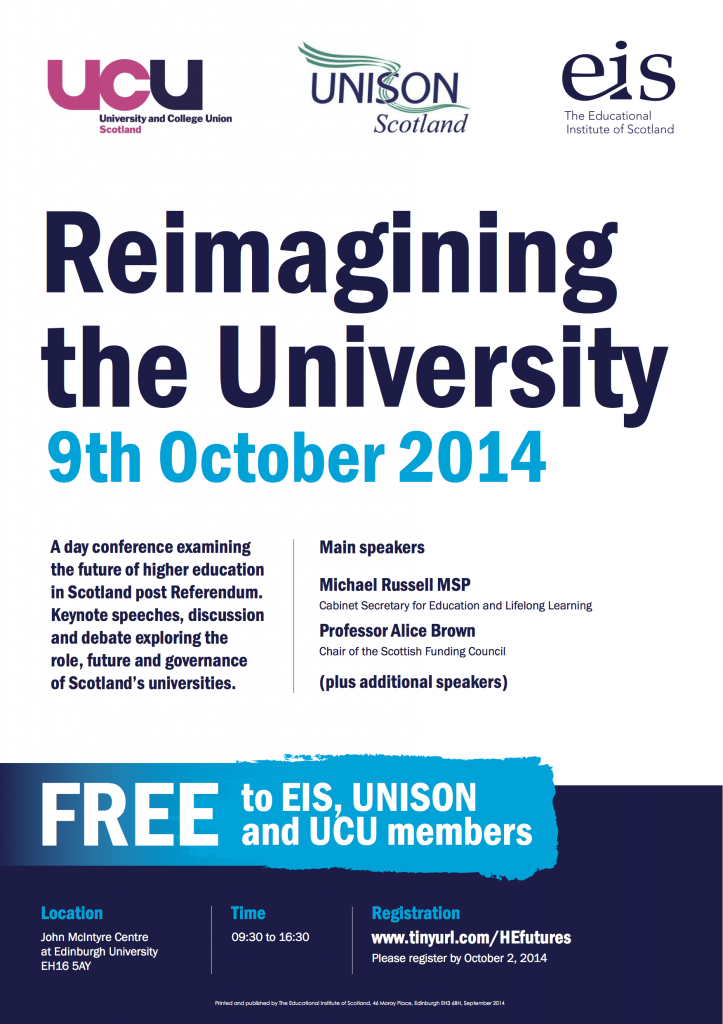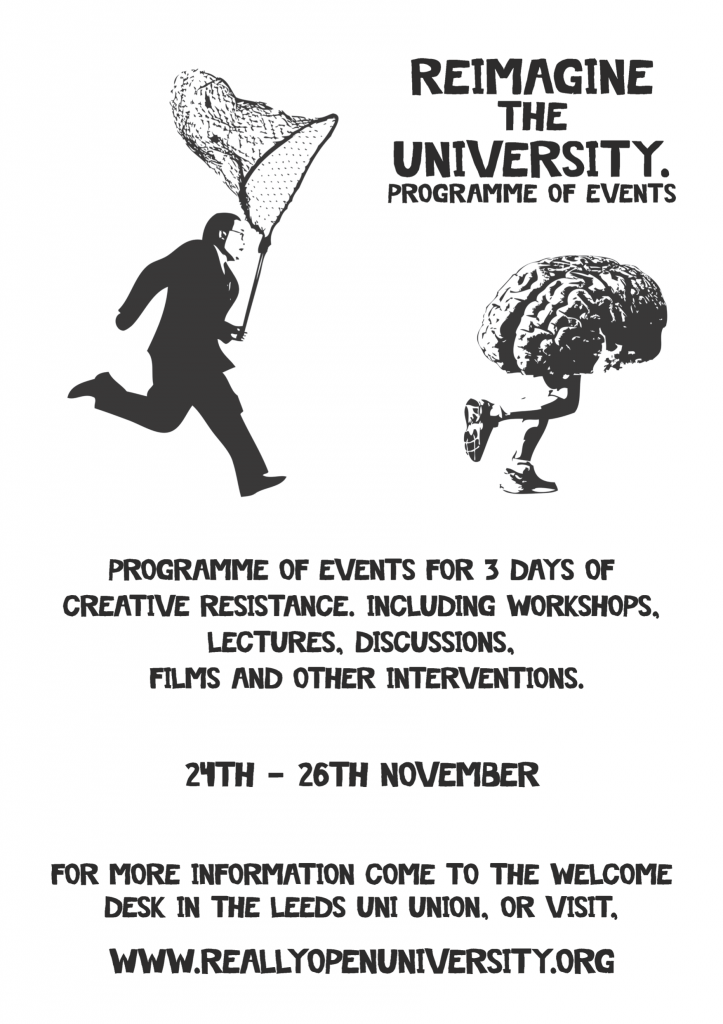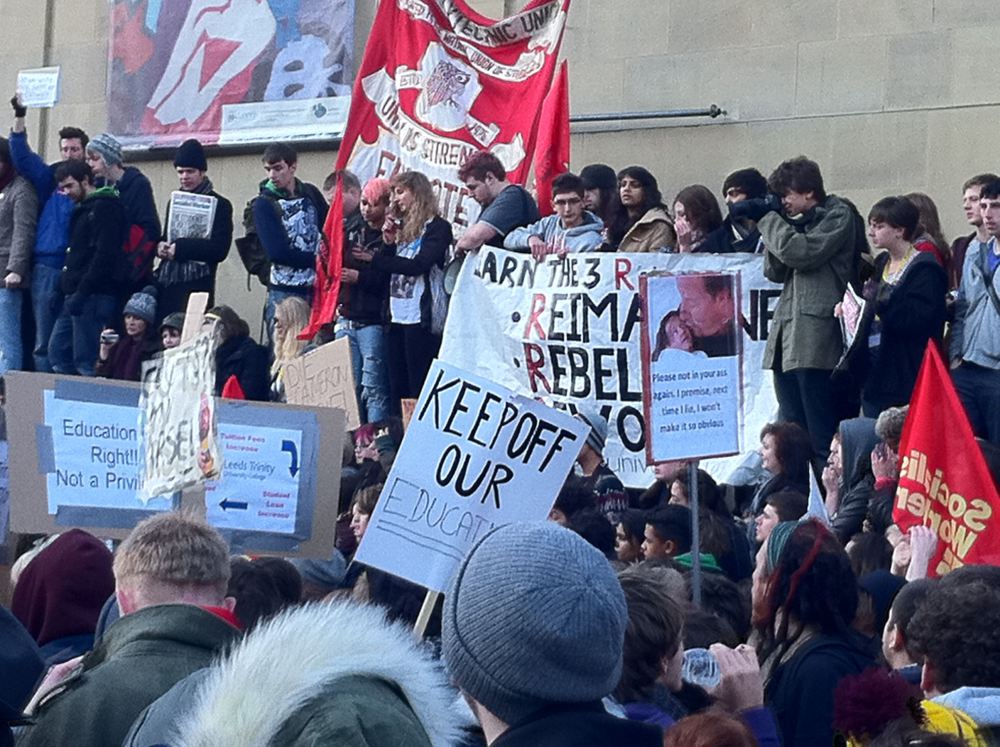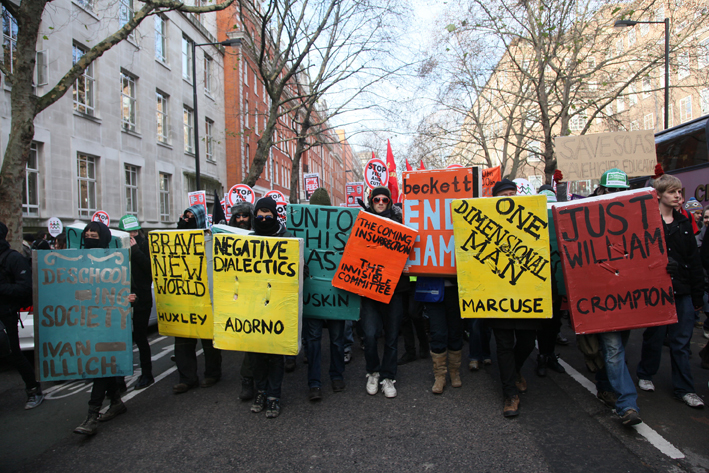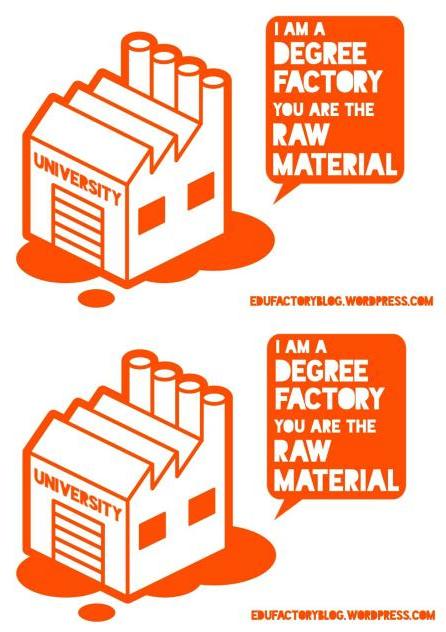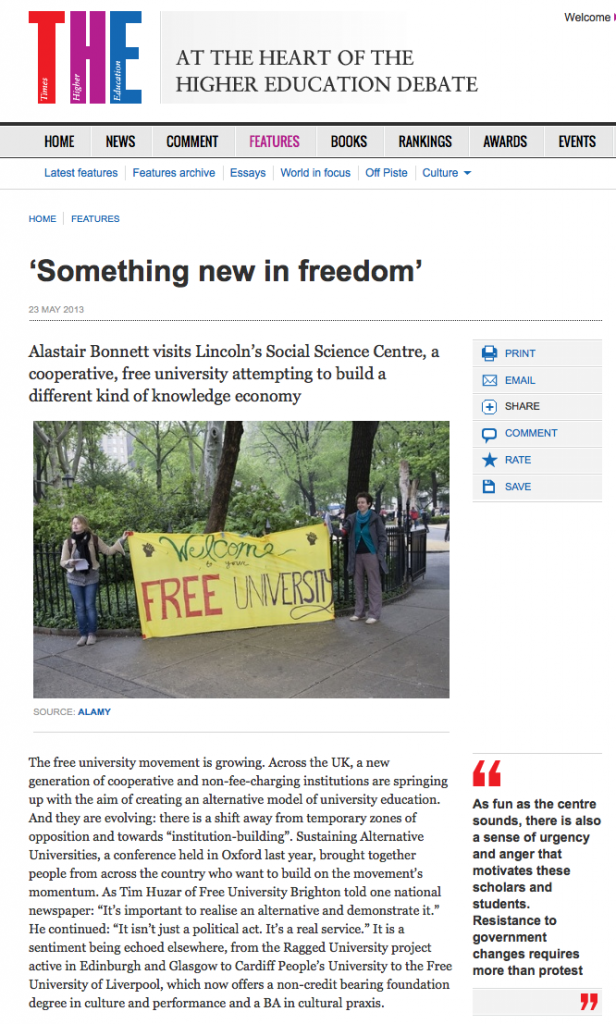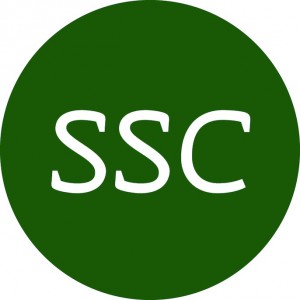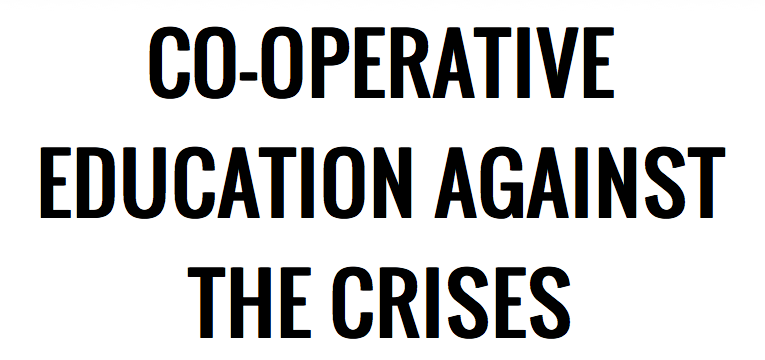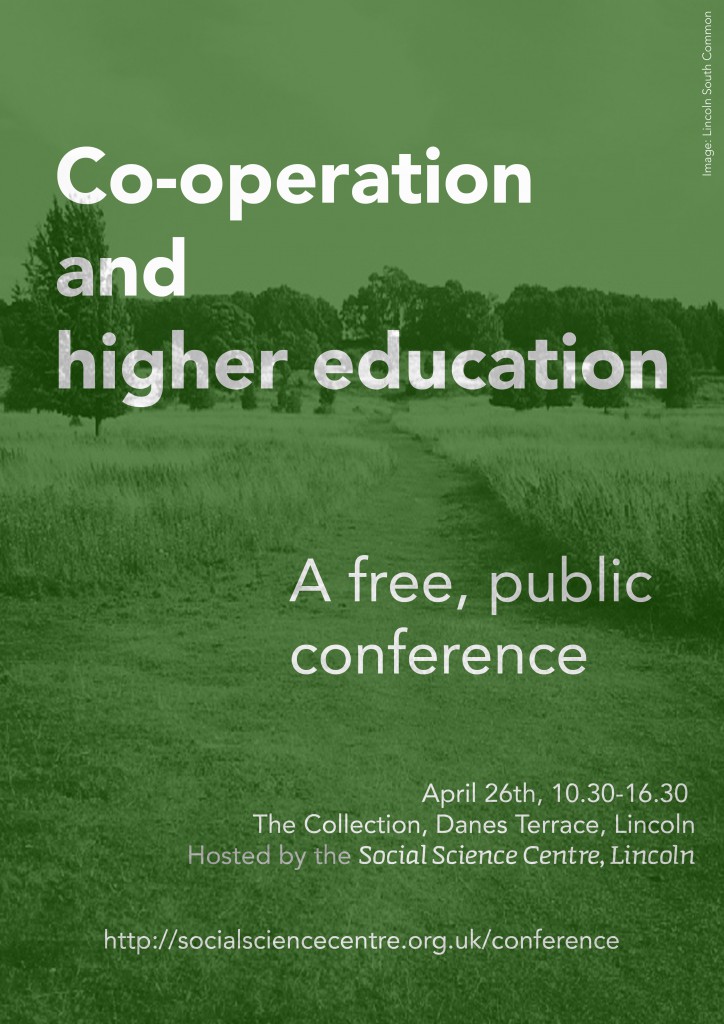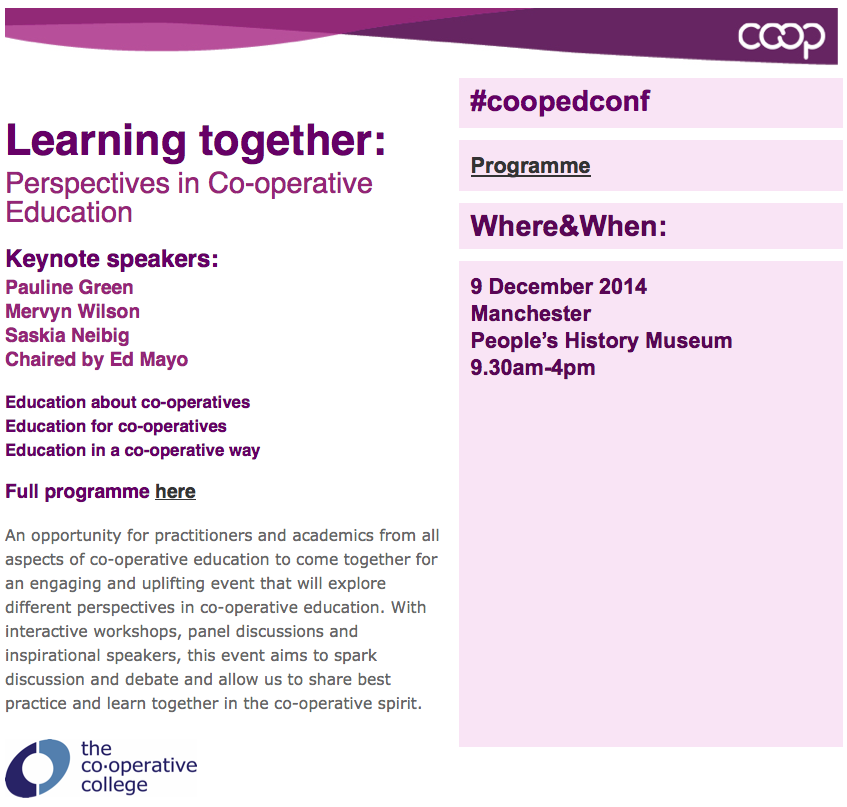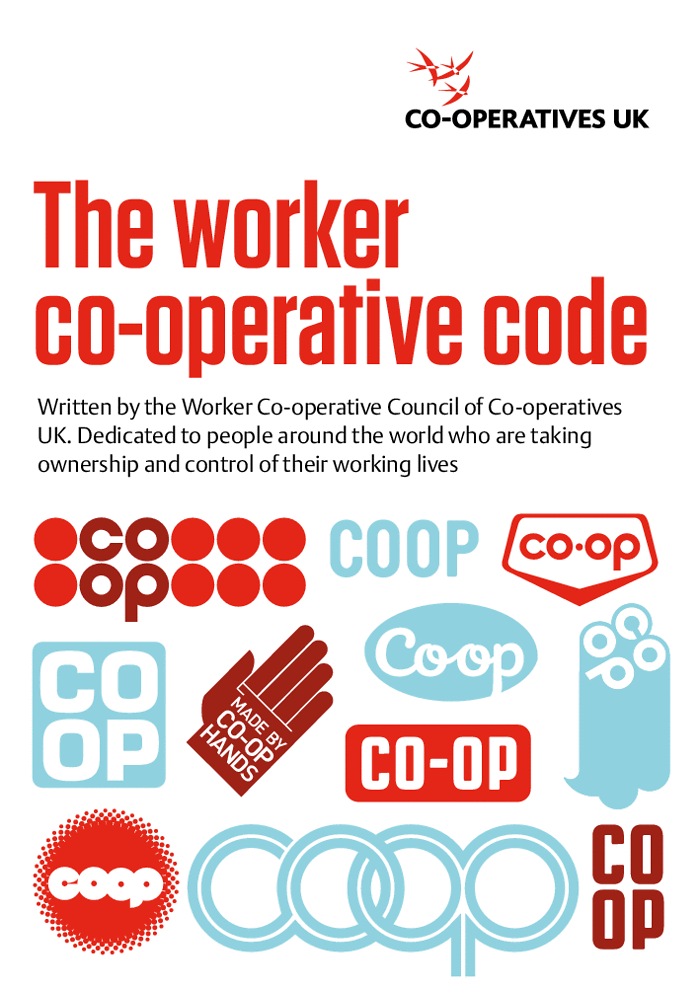Engels: “the philistine is not accustomed to this sort of abstract thought and certainly will not cudgel his brains for the sake of the form of value.” (Marx and Engels Collected Works, 1987, vol. 42, p.381)
Marx: “As to the development of the value-form I have and have not followed your advice, in order to behave dialectically in this respect as well; i.e. I have: 1. written an appendix in which I present the same thing as simply and pedagogically as possible, and 2. followed your advice and divided each step in the development into §§, etc. with separate headings. …Here not merely philistines are concerned but youth eager for knowledge, etc. Besides, the matter is too decisive for the whole book.” (Marx and Engels Collected Works, 1987, vol. 42, p.385)
In a car factory, each worker labours alongside each other, combining their labour power with the means of production, in a social, cooperative, productive whole. The product of their labour (cars) is exchanged for money, a universal commodity owned by the consumer.
On a trawler ship, each worker labours alongside each other, combining their labour power with the means of production, in a social, cooperative, productive whole. The product of their labour (fish) is exchanged for money, a universal commodity owned by the consumer.
In a university, each worker labours alongside each other, combining their labour power with the means of production, in a social, cooperative, productive whole. The product of their labour (knowledge) is exchanged for money, but also consumed for the reproduction of both the teacher’s and student’s labour power commodity. Research, teaching and learning is at once a productive and reproductive process that engages the consumer (student) in the process of production. As such, the student also produces knowledge that engages the consumer (academic) in the process of production. The exchange between academic and student takes place alongside the productive process, on its opposite pole.
When knowledge is produced as a commodity, labour-power is also re-produced as a commodity. As bearers of the labour-power commodity, what is the social relationship between academic and student when knowledge is produced?
In what follows, I have taken Marx’s “pedagogical” appendix to the first German edition of Capital and used it to theorise the reproduction of knowledge and academic and student labour power. In Marx’s original text, he uses the two groups of: ‘commodity A’ / linen / weaving, and: ‘commodity B’ / a coat / tailoring as his standard points of reference throughout. In the work below, I have replaced them respectively with: “commodity A” / “academic labour power” / “teaching”, and: “commodity B” / “student labour power” / “learning”. It is my argument that we can use Marx’s theory and method of the value form in exactly the same way to analyse knowledge production in a university.
As such, you should understand that all sentence length quotes below are likely to have been modified so as to illustrate this point while, I believe, not undermining Marx’s original explication. I encourage you to study Marx’s original text.
What I hope this exercise offers is a more substantive, critical examination of the actual social relations of higher education than our work on Student as Producer has so far offered. As a critique of those social relations, Neary’s work on Student as Producer has most recently developed a critique of its own productivist foundations but it has not, in my view, adequately revealed the political economy of higher education. My notes below are an attempt drill deeper into the circuit of value production in the university at the centre of which is the social, co-operative labour of academics and students. In doing do, I believe that Neary’s and also Moten and Harney’s argument for the ‘student as producer’ can be more rigorously grounded. Through Marx’s dialectical method of rising from the abstract to the concrete, we find that the ‘logic’ of teaching and learning in higher education is itself an expression of the value form of capital.
1. What is a commodity?
The commodity form is two-fold: use value and value. Use value is the form of the commodity’s “tangible, sensible form of existence”; the “natural form” of the commodity. Opposed to this is the value form of the commodity, which is its “social form”. Linen and coats are commodities. They both have a utility and they are both exchanged for other commodities (e.g. money) resulting in the production of value.
The primary commodity that an individual owns is their labour power. Like linen and coats and any other commodity, labour power is a commodity with a use value and a value that is realised in exchange.
2. Whose labour power commodity?
A typical university brings together thousands of individuals’ labour power, each of which have different use values categorised by various contracts (e.g. lecturer, catering assistant, IT officer, professor, undergraduate students, post-graduate student, research assistant).
A lecturer is only designated a ‘lecturer’ by their contract with the university and they are paid a wage (value in the form of money) in exchange for their labour power which itself has a use value that must meet the expectations of that contract. The use value of their labour is combined with the means of production (prior knowledge, facilities, technologies, etc.) to create surplus value (profit).
A student is only designated a ‘student’ by their contract with the university and tuition fees are paid (value in the form of money from the individual, their family, through loans, or through general taxation) in exchange for participation in the labour process of knowledge production i.e. research, teaching and learning, and its accreditation.
Although the student brings their money commodity to the university in exchange for teaching, assessment, accreditation, etc. they also bring the use value of their own labour power and exchange it as a commodity when they consume the use value of their teachers’ labour. Although there is no direct exchange of money in the classroom (that is taken care of elsewhere), the exchange of teacher and student labour power as a commodity does take on the characteristics of the value form i.e. its social form, as we will see below.
“Consider the following questions: Where is the site of production in the classroom? What is produced? Who produces, who consumes, who circulates? Any answer appears to confuse not only the point of production but also the bearers of labor power by generalizing production through consumption and circulation. The professor produces the lecture but tries to realize its value in the quality of the questions he receives after. The students consume the lecture but generate questions. The professor circulates already produced knowledge that he has consumed for his lecture notes. The students produce knowledge on exams and circulate the knowledge of the professor through these exams. The professor consumes the knowledge of the student on the midterm exam in order to produce a new exam at year’s end. At no point is any producer not simultaneously a consumer, and at no point is production not subject to the immediacy of circulation. Most important, if value is being realized in any of this circulation, then it is being realized in all of this circulation. The argument could thus be made that both professor and student (not to mention the absent labor of the graduate tutor) are coworkers in the production of knowledge, and that all are involved realizing the value of this work” (Moten and Harney, 1998: 167)
Each classroom discussion, each exam paper, each essay, is simultaneously a moment of production and consumption for the academic and for the student. Both are producers and both are consumers of each other’s (intellectual) labour power and its (knowledge) product. Both bring their physical and intellectual labour power to the university so as to produce knowledge and exchange it and produce it and exchange it and so on. I am reminded of Marx’s notes in his manuscripts:
“Production, then, is also immediately consumption, consumption is also immediately production. Each is immediately its opposite. But at the same time a mediating movement takes place between the two. Production mediates consumption; it creates the latter’s material; without it, consumption would lack an object. But consumption also mediates production, in that it alone creates for the products the subject for whom they are products. The product only obtains its ‘last finish’ in consumption.”
What differentiates the labour power commodity of the academic and the student is its perceived social quality at the moment of exchange. In this context, the labour power of the academic is usually perceived to be of ‘higher’ quality than the labour power of the student as determined by their respective experience and accreditation. Both are the possessors of the same ‘labour power’ commodity but they are, at that time, of different qualities, which can determine the quantities being exchanged. In this respect, academic labour power differs from student labour power. They are different, apparently unequal types of the ‘labour power’ commodity. They are not naturally different – each is indeed labour power, the potential to perform labour of a particular kind – but they are socially deemed as different commodities.
As well as these ‘simple’ exchanges of the use value of labour power between academic and student in the classroom, in tutorials, marking essays and exams, etc., money in the form of tuition fees, wages and surplus value/profit circulates, too, expressing a different appearance of the simple exchange relation. As Marx did, we can analyse production and consumption in the university in its simple, expanded, general and money forms. What is unusual about this analysis here is that I am referring to labour power as something exchanged between teacher and student, apart from the university/employer/wage/tuition fee exchange. This is possible because of the universal character of the money form, which is present at all times in the teaching and learning context, but remains largely unacknowledged in the classroom.
3. How is the value of a commodity expressed?
How does the value of the academic and student labour power commodity “acquire a form of appearance of its own”?
“Through the relation of different commodities” of different qualities: academic and student labour power. Our analysis starts from their simplest configuration:
3.1 Simple value form
Marx said that “the secret of the entire value form must be hidden in this simple value form.”
The “two poles of the expression of value”: are relative value form and equivalent form.
In the simple form, two commodities simultaneously play two different roles. Commodity A is the commodity “which expresses its value in the body of a commodity different from it”, commodity B.
Commodity B “serves as the material in which value is expressed. The one commodity plays an active and the other a passive role.”
“Now we say of the academic labour power commodity (commodity A) which expresses its value in another commodity: its value is represented as relative value, or is in the relative value-form. As opposed to this, we say of commodity B, here student labour power, which serves as the material of the expression of value: it functions as equivalent to the first commodity or is in the equivalent form.”
The two forms are “inseparable”. “Relative value-form and equivalent form are moments of the same expression of value, which belong to one another and are reciprocally conditioning and inseparable.”
The “two forms are mutually excluding or opposed extremes, i.e. poles, of the same expression of value. They are always distributed amongst different commodities”.
“The value of commodity A can thus only be expressed in another commodity, i.e. only relatively. The relative value-form of commodity A thus presupposes that that some other commodity confronts it in the equivalent form. On the other hand, this other commodity, B, which figures as the equivalent of commodity A is thus in equivalent form, and can not be at the same time in the relative value-form. This commodity does not express its value. It furnishes only the material for the expression of value in another commodity.”
The equation ‘commodity A = commodity B” can be stated conversely: “commodity B is worth commodity A”. The equation is reversed “in order to express the value of commodity B relatively, and once I do this commodity A becomes the equivalent instead of commodity B.”
“The same commodity therefore cannot make its appearance in the same expression of value at the same time in both forms. Rather, these exclude one another in a polar manner.”
Person A says: X amounts of my commodity is worth Y amounts of your commodity.
B agrees: Yes, Y amounts of my commodity is worth X amounts of your commodity.
“Here, as commodities, both academic labour power and student labour power are at the same time in relative value-form and in equivalent form…for two different persons and in two different expressions of value, which simply occur at the same time. For the academic, her commodity is in relative value-form – because for her the initiative proceeds from her commodity – and the labour power commodity of the other person, the student, is in equivalent form. Conversely from the standpoint of the student. Thus one and the same commodity never possess, even in this case, the two forms at the same time in the same expression of value.”
“Relative value and equivalent are both only forms of commodity-value. Now whether a commodity is in one form or in the polar opposite depends exclusively on its position in the expression of value. As regards the content, the two expressions:
1. X amount of commodity A = Y amount of commodity B or X amount of academic labour power is worth Y amount of student labour power.
2. Y amount of commodity B = X amount of commodity A or Y amount of student labour power is worth X amount of academic labour power.
are not at all different. As regards the form, they are not only different but opposed.”
“In expression 1 the value of academic labour power is expressed relatively. Hence it is in the relative value-form whilst at the same time the value of student labour power is expressed as equivalent. Hence it is in the equivalent form. Now if I turn the expression 1 round I obtain expression 2. The commodities change positions and right away student labour power is in the relative value-form, academic labour power in equivalent form. Because they have changed their respective positions in the same expression of value, they have changed value-form.”
3.1.1 The relative value form
The relative value form is a “relation of equality”, of “equalisation” between commodity A which expresses its value in relation to commodity B. Therefore, we can in fact say: academic labour power = student labour power; that is, in the act of exchange, both use values ‘owned’ by the academic and student are reduced to the same thing: value.
“We overlook that for the most part, because attention is absorbed by the quantitative relation, i.e. by the definite proportion, in which the one type of commodity is equated to the other. We forget that the magnitudes of different things are only quantitatively comparable after their reduction to the same unit. Only as expressions of the same unit are magnitudes with the same denominator and hence commensurable. Academic labour power thus relates to student labour power as something of its own kind, or student labour power is related to academic labour power as a thing of the same substance, as the same in essence. The one is therefore quantitatively equated to the other.”
“The relation of equality is thus a value-relation… As use-value, or body of the commodity, academic labour power is distinguished from student labour power. But its existence as value comes to light, is expressed in a relation, in which another commodity-type, student labour power, is equated to it or counts as the same in essence.”
“Student labour power is value only to the extent that it is the expression, in the form of a thing, of the human labour-power expended in its production and thus insofar as it is a jelly of abstract human labour – abstract labour, because abstraction is made from the definite useful concrete character of the labour contained in it, human labour, because the labour counts here only as expenditure of human labour-power as such. Thus academic labour power cannot relate to student labour power as a thing having value, or cannot be related to student labour power as value, without relating to it as a body whose sole substance consists in human labour. But as value academic labour power is a jelly of this same human labour. Within this relation student labour power as a thing thus represents the substances of value which it has in common with academic labour power, i.e. human labour. Within this relation student labour power thus counts only as shape of value, hence also as the form of the value of academic labour power, as the sensible form of appearance of the value of academic labour power. Thus by means of the value-relation the value of the commodity is expressed in the use-value of another commodity, i.e. in the body of another commodity different from itself.”
A “definite quantity of human labour is objectified” in a commodity. This is clear when comparing academic and student labour power.
“In the value relation of academic labour power to student labour power the commodity-type ‘student labour power’ is hence not only quantitatively equated to academic labour power as bodily form of value as such, i.e. as embodiment of human labour, but a definite quantity of this bodily form of value, 1 x student labour power, not 1 dozen, etc, insofar as in 10 x student labour power, there is hidden precisely as much value-substance of human labour as in 1 x academic labour power.”
Academic and student labour power are equivalent as value. They are also equated as values which embody quantities of human labour and thus are equated as definite magnitudes e.g. the labour power of one academic is equivalent to the labour power of 10 students.
“Thus through the relative value-expression the value of the commodity acquires, first, a form different from its own use-value. The use-form of this commodity is academic labour power. But it possesses its value-form in its relation of equality with student labour power. Through this relation of equality the body of another commodity, sensibly different from it, becomes the mirror of its own existence as value, of its own character as value. In this way it gains an independent and separate value-form, different from its natural form. But second, as a value of definite magnitude, it is quantitatively measured by the quantitatively definite relation or the proportion in which it is equated to the body of the other commodity.”
3.1.2 The equivalent form
“As values all commodities are expressions of the same unit, of human labour, which count equally and are replaceable or substitutable for one another.”
Value is the form through which different use values of different commodities are regarded as equivalent and can be exchanged. Academic labour power “does not need to take on a form different from its immediate natural form in order to appear as value for another commodity, to count as value and to act on it as value”.
Equivalence between commodities is not concerned with “quantitative definiteness”. Equivalence does not at first come about through a judgement of e.g. 1 x commodity A is worth 10 x commodity B. Prior to this quantitative definiteness, a more basic equivalence occurs between commodities. They are both equated as value:
“Equivalent means here only something equal in magnitude, both things having been silently reduced in our heads to the abstraction value.”
The equivalent form of value is “peculiar” in that “use value becomes the form of appearance of its opposite, of value.” That is, the use value of academic labour power takes on the value of that which it can be exchanged with: student labour power.
“In itself, considered in isolation, student labour power is only a useful thing, a use-value, just like academic labour power, and hence its student-labour-power-form is only the form of use-value or natural form of a definite type of commodity. But since no commodity can relate to itself as equivalent and therefore also cannot make its own natural hide an expression of its own value, it must relate itself to another commodity as equivalent or make the natural hide of the body of another commodity its own value-form.”
The equivalent value form is also peculiar because “concrete labour becomes the form of appearance of its opposite, abstract human labour.”
The concrete labour of the academic and student is useful. It is the labour of teaching, of learning, of researching, of writing, of marking, etc.
“The definite concrete useful labour, which produces the body of the commodity which is the equivalent must therefore, in the expression of value, always necessarily count as a definite form of realisation or form of appearance, i.e. of abstract human labour. Student labour power, for example, can only count as the body of value, hence as embodiment of human labour as such, in so far as the labour of learning counts as a definite form, in which human labour-power is expended or in which abstract human labour is realised.”
“Within the value-relation and the value expression included in it, the abstractly general counts not as a property of the concrete, sensibly real; but on the contrary the sensibly-concrete counts as the mere form of appearance or definite form of realisation of the abstractly general. The labour of learning, which, for example, hides in the equivalent ‘student labour power’, does not possess, within the value-expression of academic labour, the general property of also being human labour. On the contrary. Being human labour counts as its essence, being the labour of learning counts only as the form of appearance or definite form of realisation of this its essence. This quid pro quo is unavoidable because the labour represented in the product of labour only goes to create value insofar as it is undifferentiated human labour, so that the labour objectified in the value of the product is in no way distinguished from the labour objectified in the value of a different product.
This inversion by which the sensibly-concrete counts only as the form of appearance of the abstractly general and not, on the contrary, the abstractly general as property of the concrete, characterises the expression of value.”
The equivalent value form is also peculiar because “private labour becomes the form of its opposite, labour in immediately social form.”
“[The] material social interconnection of private labours carried on independently of one another is however only mediated and hence is realised only through the exchange of their products. The product of private labour hence only has social form insofar as it has value-form and hence the form of exchangeability with other products of labour. It has immediately social form insofar as its own bodily or natural form is at the same time the form of its exchangeability with other commodities or counts as value-form for another commodity. However, as we have seen, this only takes place for a product of labour when, through the value relation of other commodities to it, it is in equivalent-form or, with respect to other commodities, plays the role of equivalent.
The equivalent has immediately social form insofar as it has the form of immediate exchangeability with another commodity, and it has this form of immediate exchangeability insofar as it counts for another commodity as the body of value, hence as equal. Therefore the definite useful labour contained in it also counts as labour in immediately social form, i.e. as labour which possesses the form of equality with the labour contained in another commodity. A definite, concrete labour like the labour of learning can only possess the form of equality with the labour of a different type contained in a commodity of a different kind, for example academic labour power, insofar as its definite form counts as the expression of something which really constitutes the equality of labours of different sorts or what is equal in those labours. But they are only equal insofar as they are human labour as such, abstract human labour, i.e. expenditure of human labour-power. Thus, as has already been shown, because the definite concrete labour contained in the equivalent counts as the definite form of realisation or form of appearance of abstract human labour, it possesses the form of equality with other labour, and hence, although it is private labour, like all other labour which produces commodities, it is nevertheless labour in immediately social form. Precisely because of this it is represented in a product that is immediately exchangeable with the other commodities.”
The equivalent value form is also peculiar because “the fetishism of the commodity-form is more striking in the equivalent form than in the relative value-form.”
In day-to-day life, the products of labour (software, journal articles, books, linen, iron, wheat) relate to one another as commodities. They are values, they are measurable as magnitudes of value, and their common character of being values puts them into a value-relation to one another. Now the fact that, for example, ‘1 x academic labour power = 10 x student labour power’ or ‘1 lot of commodity A is worth 10 of commodity B’ only expresses the fact that:
-
the different types of labour necessary for the production of these things count equally as human labour;
-
the fact that the quantity of labour expended in their production is measured according to definite social laws;
-
that academics and students enter into a definite social relation of production.
“It is a definite social relation of the producers in which they equate their different types of labour as human labour. It is not less a definite social relation of producers, in which they measure the magnitude of their labours by the duration of expenditure of human labour-power. But within our practical interrelations these social characters of their own labours appear to them as social properties pertaining to them by nature, as objective determinations of the products of labour themselves, the equality of human labours as a value-property of the products of labour, the measure of the labour by the socially necessary labour-time as the magnitude of value of the products of labour, and finally the social relations of the producers through their labours appear as a value-relation or social relation of these things, the products of labour. Precisely because of this the products of labour appear to them as commodities, sensible-supersensible or social things.”
The main product of labour in the university is knowledge which is ‘reinvested’ into the labour power of academics and students, as well as exchanged for grants, patents, consultancy, etc. The socially necessary labour time required to acquire a level of knowledge which meets the requirements of the academic employment contract exceeds that of the socially necessary labour time required to acquire a level of knowledge which meets the requirements of entry into a university as a student. The magnitude of value of academic labour power, measured by socially necessary labour time, is therefore greater than the magnitude of value of student labour power. Although both are ‘labour power’ commodities, they are qualitatively different, yet in practice they are brought together for exchange by being relative and equivalent to each other as values. As a value relation, it is therefore a social relation.
“the commodity-form and the value-relation of products of labour have absolutely nothing to do with their physical nature and the relations between things which springs from this. It is only the definite social relation of people itself which here takes on for them the phantasmagoric form of a relation of things. Hence in order to find an analogy for this we must take flight into the cloudy region of the religious world. Here the products of the human head appear as independent figures endowed with a life of their own and standing in a relation to one another and to people. So it is in the world of commodities with the products of the human hand. This I call the fetishism which clings to the products of labour as soon as they are produced as commodities and which is therefore inseparable from commodity- production.”
The product of the exchange of academic-student labour power appears as knowledge, embodied in their respective labour power commodity, objectified in the classroom, essays, exams, journal articles, books, etc. It is the university campus, the lecture hall, the seminar room, the exam, the book, the article, etc. which seemingly bring academics and students together and construct relations between them, when in fact behind this is the commodity form and the value relation of labour power itself and the products of labour power. The university is a fetish.
3.1.3 Exchange value
“The expression of value has two poles, relative value-form and equivalent-form. To start with, what concerns the commodity functioning as equivalent is that it counts for another commodity as the shape of value, a body in immediately exchangeable form – exchange-value. But the commodity whose value is expressed relatively, possesses the form of exchange-value in that:
- its existence as value is revealed by the exchangeability of the body of another commodity with it;
- its magnitude of value is expressed through the proportion in which the other commodity is exchangeable with it.
The exchange-value is hence the independent form of appearance of commodity- value.”
Academic labour power and student labour power both exist simultaneously and immediately as opposite poles of relative value form and equivalent form. As equivalent form, student labour power is the shape of value of academic labour power. As relative value form, the shape of value of student labour power is academic labour power. There is unity in their opposite. This is not concerned with the magnitude of value, which is determined by the socially necessary labour time expended to re-produce their respective labour power up to the moment of exchange. It simply refers to the existence of exchange value, which is not to be confused with the ‘price’ of a commodity and certainly not the surplus value or ‘profit’ which may be produced through the exchange. Exchange value is the value expressed by one equivalent commodity relative to another commodity.
The magnitude of value of academic and student labour power is expressed through the degree of knowledge and subsequent physical and mental skills, which the academic and student respectively embody in the moment of exchange. This is tested socially through the exchange of labour power with other commodities. Can the student learn the same thing from another student as effectively in the same amount of time as they can from an academic? Can they learn it from the Internet as effectively in the same amount of time? Can the academic produce the same amount of knowledge as effectively and in the same amount of time if they don’t teach at all? Can the academic produce the same amount of knowledge as effectively and in the same amount of time simply through ‘independent’ research (to the extent that research is ever independent of existing social relations).
“In the relation of value of academic labour power to student labour power the natural form of academic labour power counts only as the shape of use-value, the natural form of student labour power only as value-form or shape of exchange-value. The inner opposition between use-value and value contained in a commodity is thus represented by an external opposition, i.e. the relation of two commodities, of which the one counts immediately only as use-value, the other immediately only as exchange-value, or in which the two opposing determinations, use-value and exchange-value, are distributed in a polar manner among the commodities.
If I say: As a commodity academic labour power is use-value and exchange-value, this is my judgement about the nature of the commodity gained by analysis. As opposed to this, in the expression ‘the labour power of one academic = the labour power of 10 students’ or ‘one academic is worth 10 students’ the academic labour power itself says that it
-
is a use-value (academic labour power e.g. to teach, to research);
-
is an exchange-value distinct from that (something equal to student labour power); and
-
is the unity of these two differences, and thus is a commodity.”
“The product of labour in its natural form brings with it into the world the form of a use-value. Therefore it requires further only the value-form in order for it to possess the commodity-form, i.e. for it to appear as a unity of the opposites use-value and exchange-value. The development of the value-form is hence identical with the development of the commodity-form.”
Labour power in all its expressions (teaching, research, learning, bricklaying, etc.) is the product of the social re-production of labour power which reproduces itself as intelligent, strong, skilful, useful human labour. For whatever reason, when it enters into an exchange relation it acquires the value form and hence the commodity form: “a unity of the opposites use value and exchange value.”
Commodities exist in “a relation of qualitative equality and quantitative proportionality” to each other. For example, let’s say that the labour power of 1 academic is equal to the labour power of 10 students.
or
1 academic is worth 10 students
or
1 academic = £20,000 (in student ‘contact time’ alone)
or
1 academic is worth £20,000
From this, we can see that the money form (e.g. £20,000) “is nothing but the further development of the simple value form of the commodity, and therefore of the simple commodity form of the labour product.” The simple commodity form undergoes a “series of metamorphoses” to start from ‘the labour power of 1 academic is equal to the labour power of 10 students’ to “take on the shape”, ‘1 academic is worth £20,000’.
“The expression of value in student labour power gives academic labour power a value-form by virtue of which it is distinguished simply as value from itself as use-value. This form also puts it only in relation to student labour power, i.e. to some single type of commodity different from itself. But as value it is the same as all other commodities. Its value-form must hence also be a form which puts it into a relation of qualitative equality and quantitative proportionality to all other commodities – to the simple relative value-form of a commodity corresponds the singular equivalent-form of another commodity. Or the commodity, in which value is expressed, functions here only as singular equivalent. Thus student labour power in the relative expression of value of academic labour power possesses only the equivalent-form or the form of immediate exchangeability with relation to this single type of commodity, academic labour power.”
4. Total or Expanded Value form
“The simple value-form requires the value of one commodity to be expressed in only one commodity of another sort, though it does not matter which.”
In this way, academic labour can be understood relative to student labour power, or to another commodity such as a computer, a bag of wheat, a drum of oil, etc. It follows then that if a single commodity can be relative in value to another single commodity, then it can also be relative to any other commodity, rather than in isolation with just a single other commodity.
“There exists the possibility that it has just as many different simple expressions of value as there are different sorts of commodities. In fact, therefore, its complete relative expression of value consists not in an isolated simple relative expression of value but in the sum of its simple relative expressions of value.”
Thus we obtain:
1 x academic labour power = 10 x student labour power or = 40 computers or = 1000 bags of wheat or = 40 drums of oil or = etc.
“This series of simple relative expressions of value is in its nature constantly extendible or never concludes. For there constantly occur new types of commodities and each new type of commodity forms the material of a new expression of value.”
“The value of a commodity, for example academic labour power, is now represented in all other elements of the world of commodities. The body of each other commodity becomes the mirror of the value of academic labour power. Thus only now does this value itself appear truly as a jelly of undifferentiated human labour. For the labour which constitutes the value of academic labour power is now expressly represented as labour which counts equally with any other human labour whatever natural form at all it possesses and hence whether it is objectified in student labour power or wheat or iron or gold, etc. Hence by virtue of its value-form academic labour power now stands also in a social relation no longer to only a single other type of commodity, but to the world of commodities. As a commodity it is a citizen of this world. At the same time there is inherent in the endless series of its expressions the fact that the value of commodities is irrelevant with regard to each particular form of use-value in which it appears.”
Marx identified the “deficiencies” of the expanded value form as:
- It never concludes in a final commodity and expression of value.
- The value of a commodity is only ever expressed in a limited number of equivalent commodities while excluding others.
- Human labour is only ever expressed in a particular form of commodity, rather than a unified form.
The commodity “is a citizen of the world”, meaning that the magnitude of value of a commodity can be expressed relative or equivalent to any other commodity. Because of this, Marx argues, just as we moved from an analysis of the simple form to the expanded form, we must also move from the expanded form to the ‘general value form’. In this overall transition from the simple to the expanded to the general and eventually the money form, we move to an overall more social form of commodity exchange, which can only operate through increasing levels of ‘real abstraction’ in daily life.
5. General value form
“The relative value-form now possesses a completely changed shape. All commodities express their value:
- simply, namely in the body of one other single commodity,
- in a unified manner, i.e. in the same other body of a commodity.
Their value-form is simple and common, i.e. general. Academic labour now counts for the bodies of all the different sorts of commodities as their common and general shape of value. The value-form of a commodity, i.e. the expression of its value in academic labour, now distinguishes the commodity not only as value from its own existence as a useful object, i.e. from its own natural form, but at the same time relates it as value to all other commodities, to all commodities as equal to it. Hence in this value-form it possesses general social form.
Only through this general character does the value-form correspond to the concept of value. The value-form had to be a form in which commodities appear for one another as a mere jelly of undifferentiated, homogenous human labour, i.e. as expressions in the form of things of the same labour- substance. This is now attained. For they are all material expressions of the same labour, of the labour contained in academic labour power or as the same material expression of labour, namely as academic labour power. Thus they are qualitatively equated.
At the same time they are quantitatively compared or represented as definite magnitudes of value for one another i.e.:
10 student labour power = 1 academic labour power
and
40 drums of oil = 1 academic labour power
Therefore
10 student labour power = 40 drums of oil
Or in 1 drum of oil there hides only a quarter as much of the substance of value, labour, as in 1 student labour power.”
At this point, the equivalent form becomes further developed to the “general equivalent form; or the commodity in equivalent form is now general equivalent.” As a general equivalent, the natural form of the commodity “is therefore at the same time its general social form.”
“For all other commodities, although they are products of the most different sorts of labour, academic labour power counts as the form of appearance of the labours contained in them, hence as the embodiment of homogenous undifferentiated human labour. Teaching – this particular concrete type of labour – counts now by virtue of the value-relation of the world of commodities to academic labour power as the general and immediately exhaustive form of realisation of abstract human labour, i.e. of the expenditure of human labour-power as such.
For precisely this reason the private labour contained in academic labour power also counts as labour which is immediately in general social form or in the form of equality with all other labours. If a commodity thus possesses the general equivalent-form or functions as general equivalent, its natural or bodily form counts as the visible incarnation, the general social chrysalis of all human labour.”
It is at this point that we can begin to read Marx’s work on the value form without interpretation since we have shown how the labour power of academics and students take on general value form which is relative and equivalent to all other commodities.
“The simple relative value-form expresses the value of a commodity only in a single other type of commodity, no matter in which. The commodity thus only acquires value-form in distinction from its own use-value form or natural form. Its equivalent also acquires only the singular equivalent-form. The expanded relative value-form expresses the value of a commodity in all other commodities. Hence the latter acquire the form of many particular equivalents or particular equivalent-form. Finally, the world of commodities gives itself a unified, general, relative value-form, by excluding from itself one single type of commodity in which all other commodities express their value in common. Thereby the excluded commodity becomes general equivalent or the equivalent-form becomes the general equivalent-form.”
“The polar opposition or the inseparable interconnection and at the same time constant exclusion of relative value-form and equivalent-form implies:
- that a commodity cannot be in one form without another commodity being in the opposite form; and
- that as soon as a commodity is in the one form it cannot at the same time, within the same expression of value, be in the other form.
Now this polar opposition of the two moments of the expression of value develops and hardens in the same measure as the value-form as such is developed or built up.”
Note how, in the following summary, Marx demonstrates his method of “rising from the abstract to the concrete”. Although it begins with the ‘simple form’, which might be mistaken as the ‘concrete’ operation of commodity exchange, in fact he shows that the simple form is actually an abstraction intended to reveal the nature of the money form, which does have a concrete existence in our social lives.
“In form I [simple form] the two forms already exclude one another, but only formally. According to whether the same equation is read forwards or backwards, each of the two commodities in the extreme positions like academic labour power and student labour power, are similarly now in the relative value-form, now in the equivalent. At this point it still takes some effort to hold fast to the polar opposition.
In form II [expanded form] only one type of commodity at a time can totally expand its relative value, i.e. it itself possesses expanded relative value-form only because and insofar as all other commodities are in the equivalent-form with regard to it.
Finally, in form III [general form] the world of commodities possesses general social relative value-form only because and insofar as all the commodities belonging to it are excluded from the equivalent-form or the form of immediate exchangeability. Conversely, the commodity which is in the general equivalent form or figures as general equivalent is excluded from the unified and hence general relative value-form of the world of commodities. If the academic labour – i.e. any commodity in general equivalent-form – were also to participate at the same time in the general relative value-form, then it would have had to have been related to itself as equivalent. We then obtain:
5 x academic labour power = 5 x academic labour power
a tautology in which neither value nor magnitude of value is expressed. In order to express the relative value of the general equivalent, we must reverse form III. It does not possess any relative value-form in common with other commodities; rather, its value expresses itself relatively in the endless series of the bodies of all other commodities. Thus the expanded relative value-form or form II now appears as the specific relative value-form of the commodity which plays the role of the general equivalent.”
It is this analysis of the “transition” of the forms of value that prompts us to ask: “Is ‘the student as producer’ a tautology?” The answer is “No!”. A student who is a producer remains a student. Their labour power remains contractually defined by their institution and their past accreditation (socially recognised evidence of its magnitude of value) as ‘student labour power’. To call the labour power of a student, ‘academic labour power’, would, under the logic of commodity fetishism, be a tautology that expresses no value.
Might this then be the key to undermining the capitalist production of value in knowledge production along the lines of Neary’s anti-productivist critique of the ‘student as consumer’? To actually reconceive the labour of academics and student as qualitatively the same labour power, only of recognisably different individual magnitudes, where they are not exchanged on the basis of their relative and equivalent value, but rather “from each according to their ability to each according to their need.” Such a move would entail a different type of reciprocity among people. One which Marx discusses in his Critique of the Gotha Programme. There, he argued that:
“Right can never be higher than the economic structure of society and its cultural development conditioned thereby.”
In that late text, Marx explains why the idea of equality is a bourgeois concept: Individuals are different but under the capitalist mode of production we are regarded fundamentally as equivalent workers. A communist society would recognise and compensate inherent ‘inequalities’.
“But one man is superior to another physically, or mentally, and supplies more labor in the same time, or can labor for a longer time; and labor, to serve as a measure, must be defined by its duration or intensity, otherwise it ceases to be a standard of measurement. This equal right is an unequal right for unequal labor. It recognizes no class differences, because everyone is only a worker like everyone else; but it tacitly recognizes unequal individual endowment, and thus productive capacity, as a natural privilege. It is, therefore, a right of inequality, in its content, like every right. Right, by its very nature, can consist only in the application of an equal standard; but unequal individuals (and they would not be different individuals if they were not unequal) are measurable only by an equal standard insofar as they are brought under an equal point of view, are taken from one definite side only — for instance, in the present case, are regarded only as workers and nothing more is seen in them, everything else being ignored. Further, one worker is married, another is not; one has more children than another, and so on and so forth. Thus, with an equal performance of labor, and hence an equal in the social consumption fund, one will in fact receive more than another, one will be richer than another, and so on. To avoid all these defects, right, instead of being equal, would have to be unequal… In a higher phase of communist society, after the enslaving subordination of the individual to the division of labor, and therewith also the antithesis between mental and physical labor, has vanished; after labor has become not only a means of life but life’s prime want; after the productive forces have also increased with the all-around development of the individual, and all the springs of co-operative wealth flow more abundantly — only then can the narrow horizon of bourgeois right be crossed in its entirety and society inscribe on its banners: From each according to his ability, to each according to his needs!”
In the existing relationship between academics and students, the magnitude of their respective labour power is ‘equalled’ by the general equivalence of the money commodity. It ‘balances’ the reciprocal value form relationship.
“The general value-form is the developed value-form and hence the developed commodity-form. The materially quite different products of labour cannot possess the finished commodity-form, and hence also cannot function in the process of exchange as a commodity, without being represented as expressions in the form of things of the same equal human labour. That means that in order to acquire the finished commodity-form they must acquire the unified general relative value-form. But they can only acquire this unified relative value-form by excluding from its own series a definite type of commodity as general equivalent. And it is only from the moment when this exclusion is definitely limited to a specific type of commodity that the unified relative value-form has won objective stability and general social validity.
Now the specific type of commodity with whose natural form the equivalent form coalesces socially becomes the money-commodity or functions as money. It specific social function and hence its social monopoly becomes the playing of the role of general equivalent within the world of commodities.”
1 x academic labour = 10 x student labour = 40 x drums of oil = £20,000
6. The money form
“The progress consists only in the fact that the form of immediate general exchangeability or the general equivalent-form has now, by virtue of social custom, definitely coalesced with the specific natural form of the body of the commodity gold. Gold confronts the other commodities as money only because it already confronted them before as a commodity. Like all other commodities it also functions as equivalent, either as singular equivalent in isolated acts of exchange, or as particular equivalent beside other commodity-equivalents. Little by little it functioned in narrower or wider circles as general equivalent. Once it has conquered the monopoly of this position in the expression of value of the world of commodities it becomes the money-commodity, and from the moment when it has already become the money- commodity, form IV distinguishes itself from form III, or the general form of value is transformed into the money-form.”
[It is of no concern here that the gold standard of monetary exchange was abandoned in the 1970s and replaced by fiat money.]
Marx concludes his elucidation of the value form with the final sub-section: ‘The simple commodity form is the secret of the money form’. Here he repeats how he has moved from an abstract analysis to the concrete conditions of capitalist social relations. All the ‘complexity’ of the money form are resolved in the move to simple abstraction.
“We see that the money-form proper offers in itself no difficulty at all. Once we have seen through the general equivalent-form it does not require the least brain-fag to understand that this equivalent-form fastens on to a specific type of commodity like gold, and still less insofar as the general equivalent-form in its very nature requires the social exclusion of a definite commodity by all other commodities. It is now only a matter of this exclusion winning an objectively social consistency and general validity, and hence does not concern different commodities in turn nor possesses a merely local reach in only particular areas of the world of commodities. The difficulty in the concept of the money-form is limited to comprehending the general equivalent-form as such, form III. However, form III in turn resolves itself into form II, and the constitutive element of form II is form I:
1 x academic labour power = 10 x student labour power
or
x commodity A = y commodity B.
Now if we know what use-value and exchange-value are, then we find out that this form I is the simplest, most undeveloped manner of representing any product of labour, like academic labour power for example, as a commodity, i.e. as a unity of the opposites use-value and exchange-value. At the same time we easily find the series of metamorphoses which the simplest commodity-form
1 x academic labour power = 10 x student labour power
must run through in order to win its finished shape
1 x academic labour power = £20,000
i.e. the money-form.”
This analysis suggests that a post-capitalist university is one where the labour power of individuals is not measured relative or equivalent to each other according to the magnitude of its socially determined value, represented by the universal commodity: money.
Their respective labour power is understood qualitatively in terms of their individual experience, skills and knowledge of the social and physical world: their ability or capacity as social human beings, and it is not deemed deficient during acts of ‘unequal’ reciprocity. In a post-capitalist university, social relations would accept absolute difference between individuals, rather than acknowledge difference while at the same time organising our social lives around an objective form of equivalence: money.
In a capitalist university, students’ and academics’ labour power are qualitatively different use values brought into an exchange relation, yet it is a distinctive relationship because it is at the same time co-operative and productive. It produces knowledge, which might be sold directly through consultancy, patents, etc. or through its role in the reproduction of labour power, it will be sold elsewhere by the student for a wage.
Neary posited the student as producer without analysing the student’s role as consumer. Moten and Harney argue students are producers through social, cooperative production. As I have tried to show, this social co-operation is expressed as the relative and equivalent poles of the value form, in which the producer and consumer are immediate to one-another at all time in a unity of opposites, dominated by the money-form.
